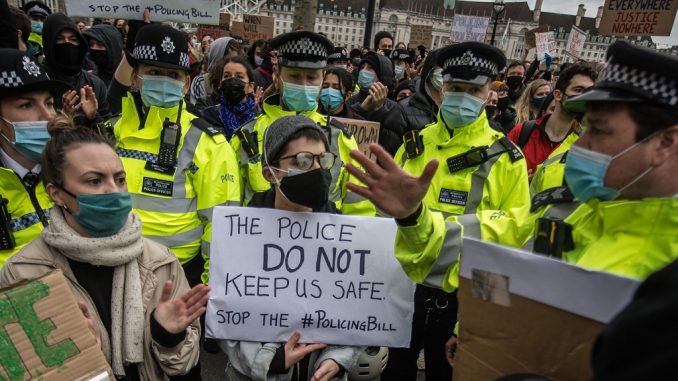
By Correspondent
Sarah Everard, a 33-year-old British woman, disappeared on March 3 in London. After a week or so her remains discovered in Kent. A serving 40-year-old police officer, who was working with the Parliamentary and Diplomatic Protection command, was charged with murder.
A grassroot organisation, ReclaimTheseStreets, called a vigil on 13 March where Sarah disappeared. However, ReclaimTheseStreets scrapped off the vigil after police pressure and threat of arrest. Nevertheless, another women group called Sister Uncut ignored the police and decided to hold the vigil on 13 March. The organisers were not expecting more than 100 people as a result of police threat and lockdown restrictions.
On the evening of 13th March thousands of people, overwhelmingly women, gathered in South London. The vigil began in grief and silence to remember Sarah. The protestors called for changes that will keep women safe. The anger was visible and directed to the police. The anger was exacerbated, given that the murderer was a serving police officer.
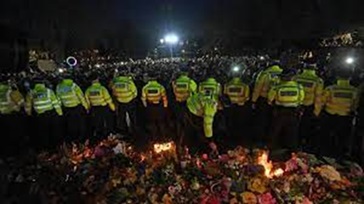
The police initially held back. Women were holding signs, candles and speaking their anger. The police, with no acceptable reason, began pushing towards protestors. The crowd was told to disperse. The gathering had been peaceful. The police started threatening the protestors with arrest.
The police could have stayed away and followed the protest from a distance. If they had done that, it could have been a peaceful, quiet and incident free event. The gathering would have taken its time and then slowly disappear in the cold street of London. The police barged their way through the crowd to stop the speeches and began arresting people. A peaceful vigil turned into a police rage. Women were dragged, handcuffed and bundled into police vans. By the end of the evening, thousands of women were chanting anti-police slogans: “Arrest your own”, ‘You do not protect us’, “You are the problem’, “Shame on you’.
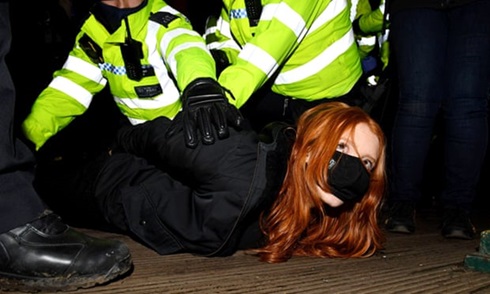
Sexual Harassment and Lack Faith in the Authorities.
According to a recent survey from UN, virtually all young women in the UK have been subjected to sexual harassment. The survey presents that most women have no faith in the system. “Among women aged 18-24, 97% said they had been sexually harassed while 80% of women of all ages said they had experienced sexual harassment in public spaces.”
96% of those women, who have been assaulted, did not report it as they believe that it would not change anything. In the year to the end of March 2020, over 58 000 cases of rape were reported to the police force in England. These led to just over 2000 prosecutions. And only 1.4% of the cases resulted in a suspect being charged. The level of prosecutions is a kind of the decriminalisation of rape.
In this grim number of sexual abuses, the London Metropolitan police takes its share too. 600 sexual harassment claims made against police officers in London. 119 cases among 600 were upheld. Police officers were found to have had sex with rape victims and domestic abuse survivors. It is no coincidence that women do not trust the police and subsequently accuse the police as ‘misogynist’. Latest manhandling and violence against women in London amplified concern among them that police cannot be trusted to protect their safety.
Police Crackdown and Future of Protest
The world is in the grip of the deepest economic and political crisis in the history of capitalism. The ecological emergency combined with poverty, inequality and social unrest has caused a possible revolt from below. The capitalist system and its masters are threatened by a possible revolt of the oppressed. The ruling class needs more draconian measures and repression or with other words a police state.
The British government passed a crime bill in the parliament on 16th March 2021. The bill called Police, Crime and Sentencing is known as anti-protest bill by the activists. The new bill handles police tougher powers to crack down on protesters. Opposition to the bill is not only coming from socialist or activists but also from 150 different organisations such as Amnesty International, Unions, Charities, Faith Communities, Liberty, Big Brother Watch, the End Violence Against Women Coalition, Unlock Democracy and Extinction Rebellion local groups.
The bill has given right to the police such as:
• To stop any demonstration, protest, assemblies on the base of noise. If someone chants in a protest, then the police have the right to ban the entire demonstration.
• Can take action against one-person protests on grounds of noise.
• Can prohibited activities that are not permitted in and around Westminster (parliament).
• Can have more power to stop and search.
• Can disperse Gyps and Traveller communities.
The Battle has Begun
The protest of mostly women in South London has triggered outrage and hostility toward the police and government. On 19 March, thousands of young people took to the streets in the City of Bristol. The protest was inspired by the women’s demonstration in London in the previous week. Mostly young people, despite police harassment and threat of arrest, marched on the streets, raised their voice and sent a clear message: We won’t be silent.
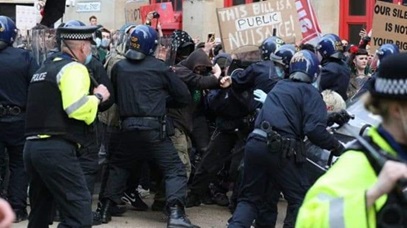
The protest had been called through social media and had no official organiser. The police had thought it was only one of protest and it would haven’t repeated itself. However, on Saturday and Sunday (20th and 21st March) more and more protestors took the streets. Hundreds of protestors were involved in skirmishes with police. Police officers wearing helmets and holding shields moved to disperse crowds violently. The resistance from the protestors shocked the police. Police, then, used dogs, horses, vans and a helicopter to drive crowds back into the city centre.
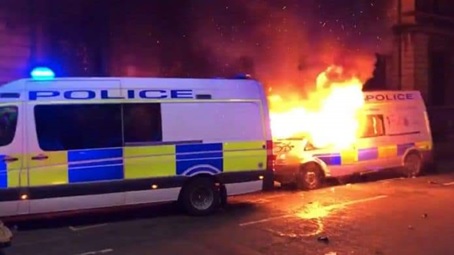
The protest started in Bristol, but It was spread to other cities such as Manchester, Sheffield, Birmingham, Brighton, Cambridge, Cardiff and more. Main demands in these gatherings could be summarised in a few lines; Against Police violence and government attempt to criminalise any protest.
Crisis in the heart of the Empire
The pandemic has revealed and exacerbated inequalities in health, education, gender, income and race. Children from poorer households find it harder to do schoolwork as they don’t have their own room or right equipment like a laptop and functioning internet connection. The working-class families were hit harder by the Covid-19. Ethnic minority groups and deprived communities suffered higher mortality rates from the virus. In the meantime, the best-paid and most highly educated have been less impacted with many able to work from home in a safe environment. Domestic abuse offences skyrocketed during the pandemic. It was revealed that almost 50 women were killed during the first lockdown (from March 2020 to May 2020). It is estimated that 14%of British children – 1.7 million- faced with hunger during the months of the pandemic.
On 31st December, British Prime Minister Boris Johnson claimed it is “a new dawn for British people” after leaving the EU. Now, the slim light is more visible from the dawn. The light tells us that there will be more pressure, oppression and criminalising the working-class. Basic rights will be shelved and a new beginning for a Singapore like country on the shores of Thames river means a police state is needed. The British government believes that it has no option but to be a police state if they would like to have a low-tax, low-regulation, low-spend in public services and uncensored free market to compete against other capitalist states.








